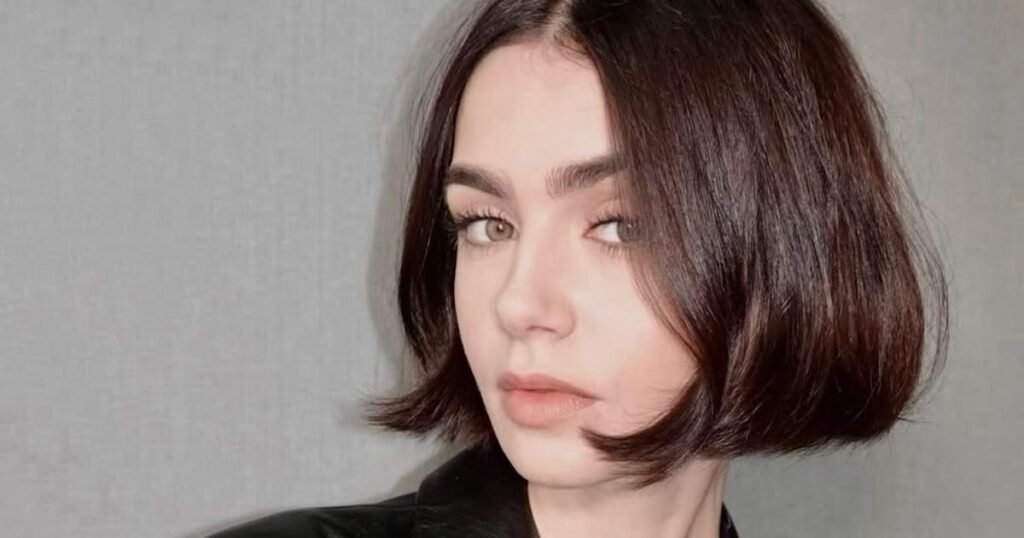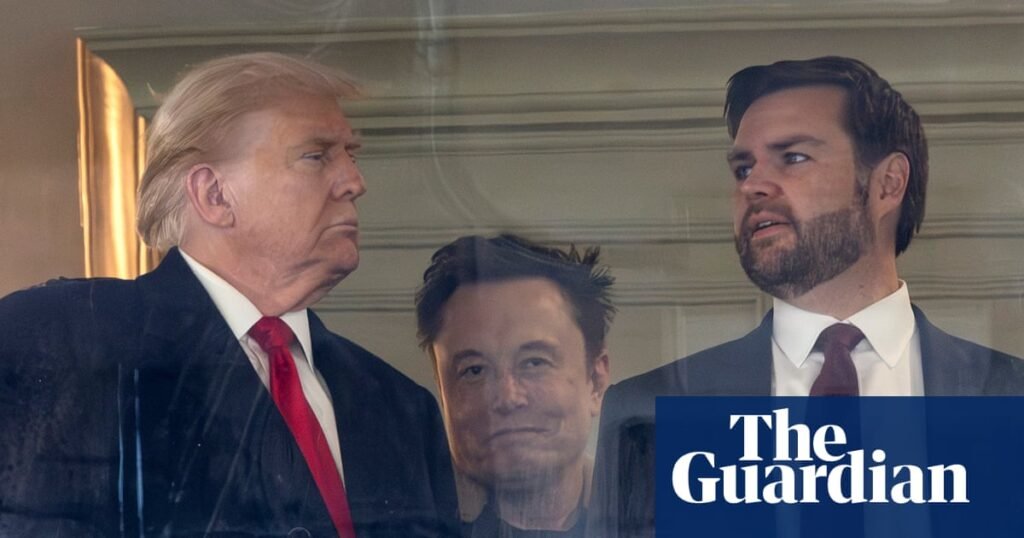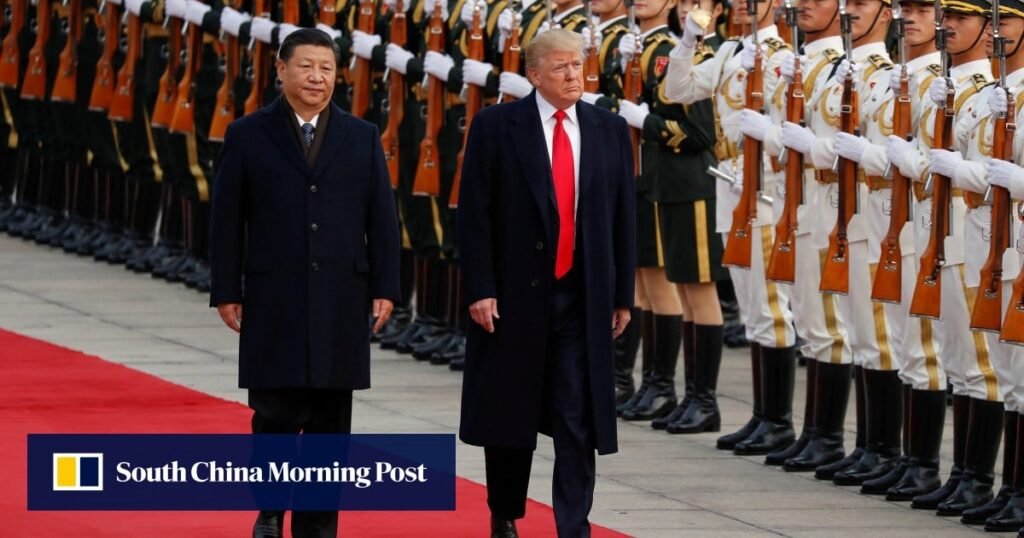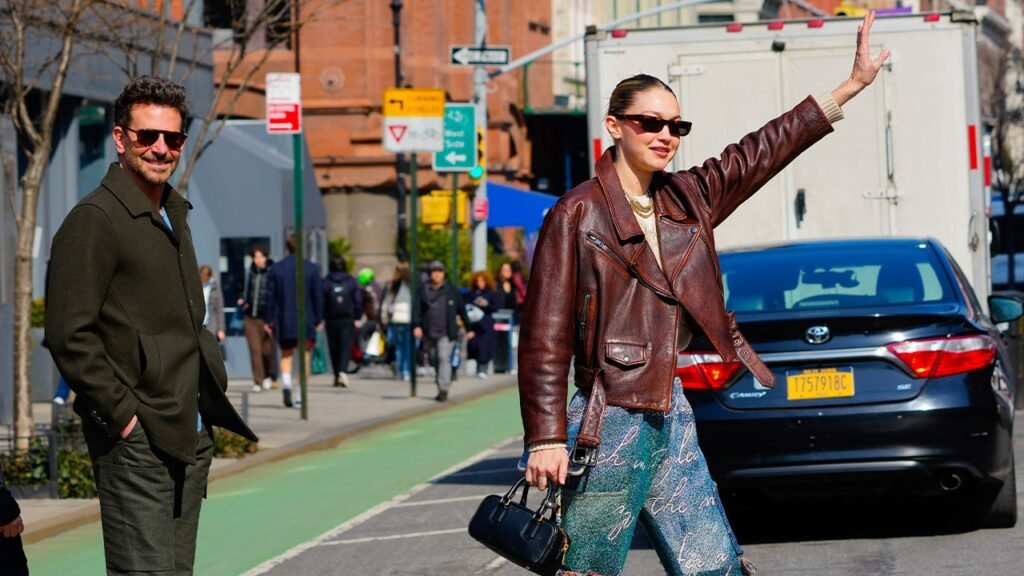Joe Locke was just 16 when he went from the Isle of Man to London for an open audition for a new Netflix show called Heartstopper. That was four years ago and, owing to Covid, his mum couldn’t go with him. But the young actor wasn’t intimidated. “I’ve always been quite an independent person,” he says now, over lunch. Locke didn’t freak out as he got through the audition process, because how could anybody have foreseen how big that show was going to get? Also, “I was so unattached to the world of TV, there was nothing that was real life to me. Maybe that helped with the nerves. If I hadn’t got Heartstopper, it wouldn’t have changed anything in my life. It would have just been a cool story, a thing I nearly got.”
In fact, he landed the lead role, and, a month after Heartstopper came out in April 2022, it became the fifth most watched Netflix show (in English) in the world. Locke was … “Grateful?” he says, with a little upwards quizzical inflection. I take his point: the coming-of-age, coming-out drama got so big, and was heralded as so delightful, that it’s hard to imagine anything but that fate (or the universe, or whatever) was behind it.
Even when he got a major role on Broadway in Sweeney Todd after the second season of Heartstopper dropped, he took that in his stride because of his hinterland – the am-dram scene on the Isle of Man. He talks about Manx theatre with passionate intensity, and tells me that the Isle of Man is more than what he calls “a great place to grow up and a great place to grow old – a very beautiful, picturesque tax haven”. With three theatre festivals a year, for a population of 84,000, it’s a factory for producing thesps.
Still when he was cast in Agatha All Along, Marvel’s new addition to the WandaVision TV franchise, he accepted that, OK, this was a pretty big deal. “The first Iron Man film came out when I was four. I grew up watching these films,” he says, scattering emphasis everywhere. “Even WandaVision, which our show is based on: I remember watching it with my friends when I wasn’t even in the industry yet.” It has quite a high barrier to entry, the Marvel Cinematic Universe, unless you’re already an apex superhero (Bradley Cooper, Chris Evans). Its newest citizen is an unlikely addition – Locke looks younger than his 21 years, knowing but sweet, like a well-groomed bushbaby. He’s not an old‑fashioned lionheart, and that’s kind of the point.
Heartstopper, based on Alice Oseman’s graphic novel, was deceptively simple – boy meets boy, falls in love, is rebuffed, gets unrebuffed, love deepens and it’s complicated. It ignited because Locke’s Charlie Spring was a new kind of hero, befitting its era: emotionally open, with a steeliness of intent and rock-solid sense of self; his vulnerability is his strength. Variety called Heartstopper “blissfully queer”, (the Guardian called it “possibly the loveliest show on TV”), but it wasn’t only in its approach to sexuality that it broke the mould. This was a whole new way to be a leading man.
Locke is lunching in the Corinthia, an unfeasibly fancy hotel in central London. He can’t eat his salad because he has a really sore throat and “it’s like swallowing knives. Even water is like swallowing knives!” Disney sent a doctor to see him this morning, so he’d be match-fit to talk about Agatha All Along, and we both pause to consider the immensity of being so vital to a global corporation that they send a physician to your hotel room. “I’m still a person, but I’m also a commodity,” he says. “It’s quid pro quo: they get a lot out of me, I get a lot out of them. And I love that; it makes me feel less bad about inviting my friends to the hotel and Disney paying for our cocktails.”
Locke plays Teen, opposite the magnificent Kathryn Hahn as the titular Agatha. She’s a witch – you might remember her as the villain in WandaVision and he’s, well, a teen. Agatha has been robbed of her powers and can’t get them back without a coven. Teen starts off naive, biddable, obsessive, a fanboy, and over time becomes – for the avoidance of spoilers – not those things. The coven assembles – Patti LuPone, Aubrey Plaza, Sasheer Zamata, Ali Ahn and Debra Jo Rupp – all stone-cold scene-stealers, but here it’s more as if they’re working together to set fire to the scenes. Hahn’s performance has the volatility of an actor in total control; Locke has such a compelling physical presence – taut and luminous – that you could mistake him for having been trained in mime. In fact, he hasn’t been trained at all; he just hasn’t had time. Anyway, “Agatha is the best drama school you could imagine,” he says. “Getting to work with these incredible talents. I’m a really observational person, I’m good at visually learning from other people. Watching the way Kathryn puts herself into a scene, the way she moves her eyes, the way she says certain things. There’s an incredible movement she does with her mouth, I must have watched it 10 times. She’s so gripping.”
This is a two-way street. Hahn has a 25-year career going back to How to Lose a Guy in 10 Days (2003), but tells me: “I never felt a mentor/mentee vibe with Joe. I respected his game from the start. He came to play, and constantly surprised me.” She hadn’t seen Heartstopper when they first met. “I just met him as this wise-beyond-his-years actor,” she says. “I naively thought he was out of nowhere. Then when I saw his performance in that show it just cemented all that I had thought: he’s the real deal. My 15-year-old daughter loves him, my uncle loves him, queer kids love him – his appeal transcends all just because he is completely himself.”
Locke is not one of those actors who, hitting the small screen young, feels as if he ought to go back and get some formal training. “It would be like taking a three‑year break to then come back and do the same thing I’m already doing,” he says. “It feels like it would be a bit of a waste.” He can’t see himself becoming a method actor, quoting the famous advice to Dustin Hoffman, who had stayed up 72 hours to look wrecked enough for Marathon Man: “My dear boy, why don’t you try acting?” (“I can’t remember who said it,” he says, and I say, “Laurence Olivier”, and he says, “I said it was him, and someone said it wasn’t, and now I get scared whenever I say it.” There’s that Charlie Spring-like candour again; his sensitivity is his superpower.)
If he’s not about to turn method, he has a “process – actors talk about having that from within; mine is more learning everything I can about the character. On the day, I like to be able to just go for it. I got really into witches for this show. I did a deep dive into Marvel history.” History, I’m inwardly scoffing; the cinematic universe only arrived in 2008. But Joe Locke was, as he says, just four when Iron Man came out, so plainly that would feel like quite a long time ago.
He talks fondly about his childhood on the Isle of Man, but adds: “There are weird rich people, and then country types. It’s a very strange mix.” His mother grew up there, his father’s side of the family are from Ireland. His dad runs a newsagent; his mum teaches children with special needs. He has siblings, he says, all younger than him. When I ask if they find it at all peculiar that their brother, who until five seconds ago was a regular kid, now divides his time between a flat in central London and a red carpet in LA, via a show on Broadway, he says: “I don’t know. I’ve never actually asked them.”
He doesn’t see his birthplace as any kind of backwater, showbiz-wise; he was very into school plays and says that locally there are “a lot of people who are very talented, go to drama school, but then aren’t lucky enough to make it in their first few years in London, and so have to move back. Because of that, there’s a lot of amazing people to learn from.”
He loves Stephen Sondheim, and says his dream role is Bobby in Company, “though obviously I’m much too young”. Then he changes his mind: his dream dream role is Rose in Gypsy, “but that would obviously not happen” (for a combination of reasons; times have changed, but do 21-year-old guys get to play middle-aged women yet?). He remembers, as a kid, watching a bootleg of Patti LuPone doing Gypsy on Broadway, circa 2006. The next time he saw her, he was acting opposite her on the set of Agatha All Along.
It was a friend of Locke’s mum who saw the fateful casting call for Heartstopper – “Charlie Spring (age 14, nearly 15). Openly gay overthinker (open to any ethnic heritage)” – and thought of him. Locke, then 16, had come out to his mum aged 12, then to his Instagram followers, then decided that was too public, claiming his account had been hacked, and came out to his friends again three years later, to which they replied that he had told them ages ago. Being gay was no problem for him at school.
“I wasn’t bullied, but I was also in a very lucky position. There are a lot more issues in schools than people might think, to do with that. Teenagers can be horrible people. Really mean. I don’t know if that will ever change. But the things they’re being mean about might have changed. Definitely, people still do get bullied for their sexuality; but you might not be bullied for that, and still get bullied for wearing the wrong shoes. I was very lucky that I didn’t, but then I was also very quick with my tongue at school.”
He had got into the Heartstopper audition room with a headshot from a school play, A Chorus Line, which he was still sending out until a year ago. He knew about the graphic novels on which the show is based, but wouldn’t have called himself a superfan. By the time he got the part, though, he had realised how much he wanted it, and says with feeling: “The sick thing in the industry is you get so invested in playing a part, and you have no control over whether you get it.” It “was not a major set. It always felt like they were making an indie film on an indie budget,” he says. They weren’t on mega-salaries; word is that the whole cast went back to renegotiate their contracts before season three.
When Heartstopper came out, Locke was, technically at least, doing his A-levels. “So I’d be flying to London for an event, flying home the next day, going into school, sitting an exam, every day for three weeks. It was a crazy way to live. I got ABB. I was very proud of that, because I didn’t really do any work.”
Part of the reason Heartstopper was so instantly well loved was the palpable freshness, youth and inexperience of the young cast – only Kit Connor (as Nick Nelson, the initially straight love interest) and Corinna Brown (Tara Jones) hadn’t arrived via the open audition. It was simply impossible not to be on their team.
That year saw the inaugural Children’s and Family Emmy awards, and Heartstopper won five of the nine it was nominated for: outstanding young teen series; outstanding writing for Alice Oseman; outstanding casting for Daniel Edwards; outstanding lead performance for Kit Connor; and outstanding guest performance for Olivia Colman.
after newsletter promotion
Situated so squarely in the young adult space, it’s surprising that it didn’t generate more ire from the homophobic right, particularly in the US, where the LGBTQ-book-banning movement in schools was already, by 2022, gathering pace. “This world is a very scary place sometimes, and it feels a bit weird that Heartstopper has almost been immune to that – a lot of queer shows get a lot of hate from rightwing groups, and Heartstopper doesn’t, and I don’t really understand why. You’ll often hear Trump supporters talking about queer people and queer shows,” Locke says. “I want to get hate-tweeted by Donald Trump!”
Netflix didn’t change society overnight, however. All the Heartstopper stars had their personal lives pored over for clues that they were like their characters, or weren’t enough like their characters: Connor was hounded for a photograph in which he was holding hands with a girl, until he snapped and tweeted, on Halloween 2022: “Back for a minute. I’m bi. Congrats for forcing an 18-year-old to out himself. I think some of you missed the point of the show. Bye.” Oseman replied to that: “I truly don’t understand how people can watch Heartstopper and then gleefully spend their time speculating about sexualities and judging based on stereotypes. I hope all those people are embarrassed as FUCK. Kit you are amazing.”
Locke, already out, had none of that, but has sometimes been vexed by the recurring question: “Do you have to be a gay teen to play a gay teen?” It has that feeling of a bear trap laid to turn diversity inside out. “I wouldn’t want to not be able to play a straight character, so I don’t think it’s fair to stop someone straight – who can do all the research – from playing a gay character,” Locke says carefully. “As long as you’re playing a part authentically and with the best intentions – you’re not just playing a stereotype – then go for it.” Practically speaking, of course, when they had those auditions, “There’s no way they would have been able to say, ‘Are you gay, otherwise you can’t audition for this part?’ to a 16-year-old. You shouldn’t need to know that.” Yet, at the same time, “representation is really important”, so he has carried the standard for it, in some ways against his will. “I’m a very private person. If it wasn’t for Heartstopper, I don’t think I would talk about my sexuality in the media at all.
“I get a lot of auditions for more gay teenage characters, very similar parts, and, while they’re great, I’ve played two gay characters now” – Teen is also gay. “Not that I would not want to play another gay character, but I want to be a versatile actor, not get stamped.”
By the time he appeared in The Trials at the Donmar Warehouse in London in summer 2022, Locke was never mentioned without the prefix “Heartstopper’s”, and that performance also slotted into his mould: it’s set in a dystopian future where the climate crisis is unstoppable and the young have brought the old to trial for crimes against the future. Locke, relaxed and compelling as a firebrand juror, was the living embodiment of what Suella Braverman might call the woke army; sexuality wasn’t the point (there was an environmental catastrophe, dummy), but it was in the air, as the young cast introduced themselves with their pronouns. “Sexuality is so fluid nowadays, and my generation is better than previous ones at talking about feelings and being open. I think we’re more emotionally available than previous generations, not for any fault of their own. Just, you know, that’s the world that people grew up in.”
Sweeney Todd, on the other hand, came as a surprise to everyone. His agent didn’t even know he could sing (he describes his voice, modestly, with the words: “Well, I can hold a note.”) Locke was cast as Tobias Ragg, the unlikely 14-year-old cockney hero of the musical. He went to New York thinking it would be like a maxi-break with a bit of performing. “It’s three hours a day, five days a week. I thought I was going to have so much fun, get drunk every night, go to all the clubs. I did not do any of that. I was more exhausted than I’d be after a 16-hour filming day.” It is a physically punishing business, but also pretty nerve-racking – the sheer scale of Broadway, the fact that “people are paying a lot of money to see it, you have to look after yourself to make sure you’re doing the best possible job. It was the most terrifying thing I’ve done. I loved it.”
On the first night, someone filmed a solo of his and put it on TikTok, and he remembers thinking: “Thank God. I don’t sound that bad. There’s evidence online of me doing OK, so even if every other show goes really badly, it’s fine.” Listening to it, you realise that role wasn’t as big a risk as he makes it sound. His voice is powerful and assured. Locke loves musicals; his mum used to take him to London every year to see a show for his birthday. He’s still talking about seeing Imelda Staunton – no, not in Hello, Dolly!, though he’s seen that, too, but in Gypsy in 2015. At the time, many people did say it was one of the most striking performances they had ever seen in a musical. Joe Locke was 11.
The Marvel universe has been pretty accommodating about his other projects: “They know what they need to do to keep people happy.” He has no fears about getting handcuffed to the high-end supernatural franchise: “Please, I’d love to be locked in for 10 years. I’ve really had the best time.” Since Sweeney Todd closed in May, and season three of Heartstopper wrapped the previous December, “for the first time in three years, I’ve been not that busy. My life’s been busy because life’s just busy, but it’s the least busy I’ve been and I’ve hated it. I cannot sit still.”
He’s in a lucky position, he says, because he has so much time; he might even go back and do a degree. He’s pretty academic, though he makes some distinctions here: “I’ve always been very good at retaining information. I would do well in school, not because I was smart, because I could remember things.” But at the front of his mind is not whether to fill the next gazillion decades with study or partying. It’s not even being Disney’s darling child, though he’s clearly enjoying that. He has a terrier-like focus on his next role, and that’s what he keeps coming back to: “I miss being on set. I hopefully will get a job soon.”
His dream move is a feature film – indie, preferably. “What’s really great about having done a Marvel series is it gives you the openness to do tiny films, with no budget and really great scripts. I come from a very working-class family; I’m definitely not in this game for the cash grab.” Ideally, also, he’d be the bad guy. “I want to play a villain; I want to play a part where you get to explore elements of humanity that you would never get to do in real life. Someone completely different to me. But who knows, maybe I am authentically evil.”
I’ll brook the possibility, sure; I’ve only just met the guy. But then he tells me, with open delight, that he’s flying his mum out to LA for the premiere of Agatha All Along next week; that they have already been shopping to get her a dress; how glad he is to be able to support himself as a 21-year-old. I think, on balance, authentic evil is unlikely.



















